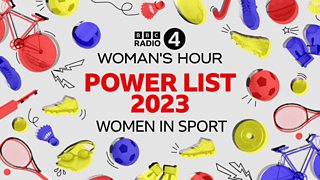‘It’s such a big decision’: When and how should you discuss whether you want children or not with your partner?

Lots of people question whether they want children or not. It’s also a subject that people often struggle to chat about. But when should you bring up whether you want children with a partner? And if your opinions differ, what should you do?
A listener we are calling Sarah joined Nuala McGovern on Â鶹ԼÅÄ Radio 4’s Woman’s Hour to discuss what it’s like to be in a marriage when you and your partner have different opinions on having children. They were also joined by Val Sampson who is a relationship counsellor.
Keep reading to find out more about Sarah’s story and Val’s tips about when and how couples can have the conversation...
Sarah’s story
Sarah met her husband just after university and they married five years ago when she was in her twenties. The young couple had conversations about having children early on in their relationship, but as Sarah says, they were young, and parenthood seemed like a long way off.
I’m increasingly feeling that I don't want kids.Sarah
“I'm now in my early 30s. The reality that I'm seeing of parenting seems a lot less appealing,” says Sarah. “Although we had those conversations early, we perhaps didn't know exactly what it might be like. And we're finding that out more and more as time goes on. That's changing the conversations that we continue to have.
“I’m increasingly feeling that I don't want kids and my husband had always assumed he would. And I think although he's open to the possibility of not having them, the big question is whether he will get to a point where he decides that he needs to have kids in his life.
Sarah acknowledges that some people don’t have a choice when it comes to being able to have kids. “Assuming that we're able to have kids, I appreciate we're in a very privileged position.
“We have an extremely happy marriage, we are deeply in love, we want to be together forever. The only thing that would ensure that didn't happen will be if he decides he can't live without kids. And if I decide that I can't have them”.
Although Sarah and her partner feel that they “argue well”, she admits that the decision-making process is “fraught” because it's such a big decision they are trying to make together.

So, when and how should you discuss whether you want children or not with your partner? Relationship counsellor Val Sampson shares her tips.
1. Start talking early on
“It's really important to have the conversation and to continue to have the conversation. And to do it pretty early on,” says Val. “I think certainly when there's serious commitment being talked about, because you're thinking about what your life is going to look like if you meet somebody and you think: ‘I'd like to be with them for a long time’. So, certainly by then.
We underestimate the impact of our own family experience on how we feel about children.Val Sampson
“I think probably on the first date is a bit early. But you can certainly bring the conversation up.”
2. Don’t have just one conversation
“As I say, it is a series of conversations as the relationship develops”, says Val.
“It's worth putting time and investing energy in thinking it through. The downside of not thinking it through is when I see couples down the line who haven't had these conversations and whose relationships have really suffered as a result”.
3. Consider the beliefs that you bring into the discussion
“We underestimate the impact of our own family experience on how we feel about children and how we feel about being a parent”, says Val.
“Understanding what kind of beliefs and experiences you're bringing with you into the discussion really helps get you some clarity.
“Sometimes I work with people and they've had a very unhappy childhood. And one of the things they might say is, ‘The last thing I'd want to do is to inflict that on someone else’. So, we have to acknowledge that. And then we think about: ‘Well, if you were to have a family, what would you do differently?’
“It's not a process of trying to persuade a client one way or the other. But what we're looking to do is get as much information as we can, so that when you do make a decision, you feel that you've made the best choice you can with all the information available. Then you feel ready to embrace the path that you choose”.
4. Think about talking to a counsellor
“If it's something you feel you can't resolve happily yourself, talk to a counsellor and get some support with the conversation,” says Val.
“I think if you're with a third party in a counselling area, you get a chance to really talk it through and acknowledge and explore the feelings or the beliefs that you carry that you're not even that aware of”.
Listen to any episodes of Woman’s Hour you’ve missed on Â鶹ԼÅÄ Sounds. Join the conversation on Twitter and Instagram @bbcwomanshour.





